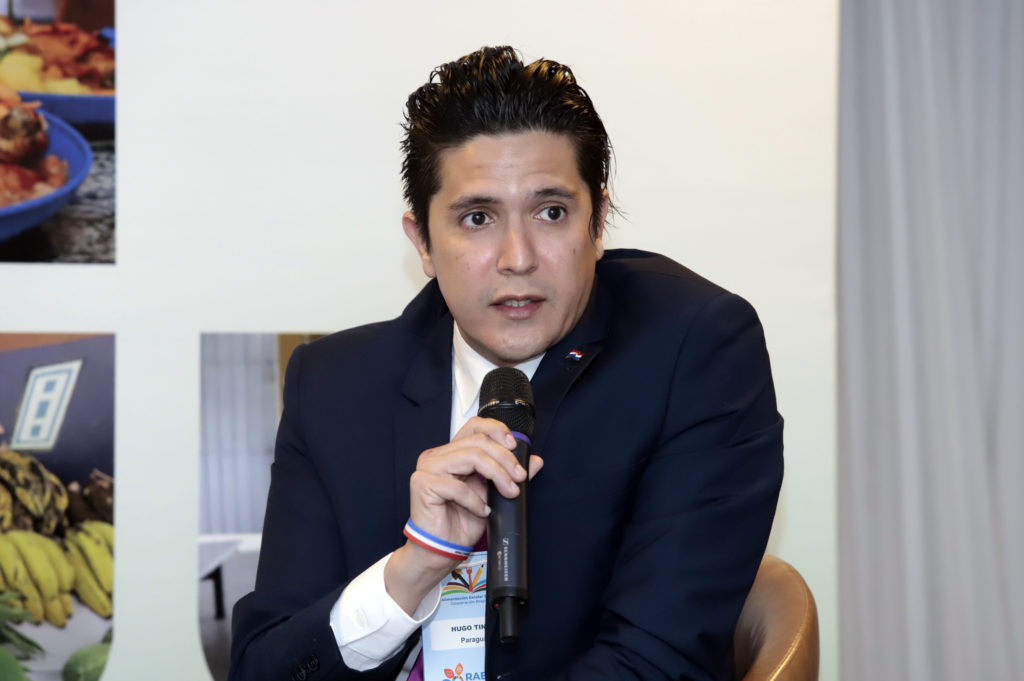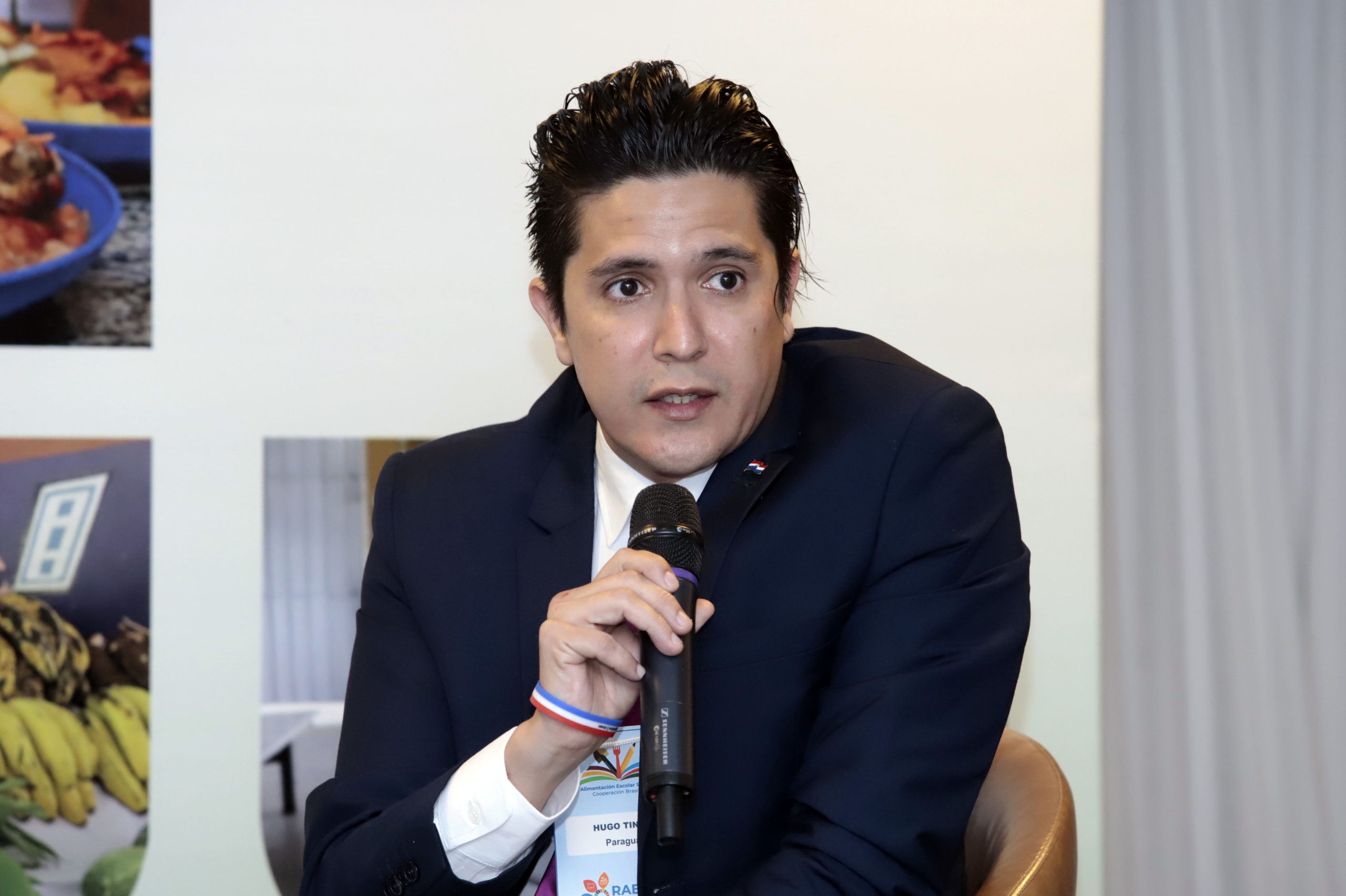In an interview with the RAES platform, the expert points out the value of having a regional forum for dialogue and exchange of knowledge on school feeding
Paulo Beraldo
BRASÍLIA, September 21, 2022 – “If we all do it together, everything works out better. And the RAES is making that possible”. With these words, Hugo Tintel, director of the Student Welfare Direction of the Ministry of Education and Science of Paraguay, ends his interview with the Sustainable School Feeding Network platform (RAES by its Spanish acronym).
In his view, spaces like the RAES, by bringing together food managers from Latin America and the Caribbean, allow dialogue, exchange of experiences, and contact with other realities. Also, it provides encouragement and support, especially in times of crisis, as in the case of the COVID-19 pandemic.
“It is very important to be able to accompany regional strategies and initiatives of other countries,” he says. “In Paraguay, we have been practical, and intelligent, and we have not stopped attending the children in the school feeding programme (SFP) during the pandemic. RAES supported us a lot in that.”
Tintel emphasizes the knowledge promoted by collaborative networks and regional elements, adding that the current principle of globalization and technical exchange cannot be ignored. He evaluates that the exchange with the countries supported by the Brazil-FAO International Cooperation, FAO, and RAES allowed the region to advance towards a complete view of school feeding.

“Not only to think about the arrival of the fresh plate, but also its quality, the student coverage, the food and nutrition education actions and the links with family farmers”, he adds. “We cannot recognize the advances in the Paraguayan SFP without accepting that this has come about through debates, talks, dialogues, and exchanges.”
Mr. Tintel defends the need to previously work on the legal aspects related to school feeding, food purchases, and sales between nations. And always respecting the country’s food culture. According to him, this will allow a favorable reaction in situations when certain products are lacking. And he sees benefits, especially for the SFPs, with these changes.
For that, it would be necessary to dialogue and discuss together the legislation with the legal and constitutional dispositions of each country, in addition to finding models of economic exchange of import and export of certain products, facilitating common legislation. “It would be possible to unify aspects that would allow us to make a qualitative leap and protection, concerning all the food regulations of our countries because of their differences. That would help to avoid shortages of some products”.
Tintel stresses that everything would be done respecting the legislation of origin, with local agreements. “It would be a very significant step forward to break these regulatory constraints. We would like to look at legal possibilities to maintain the quality of school feeding, focused on local, and national production and in alliance with products from the region when necessary.”
The expert explains that the Paraguayan school feeding programme is about to turn 10 years old and that this policy “is capitalized and based on the principles of international cooperation, with the support of FAO Paraguay and the Brazil-FAO International Cooperation”. At this moment, he points out that it is the ideal time to put on the table all the challenges to be solved with the regional countries. “This milestone allows us to review and propose, to see possible legal adjustments in the school feeding law, talking about sustainability, coverage, deconcentration, thinking nationally and regionally.”
For Tintel, one of the challenges is to improve the process of transparency of public investment in school feeding. In Paraguay, a management and information system with user traceability was developed, with the purpose of measuring the investment per student. It makes it possible to justify how the program has benefited nutritionally, academically, and in the quality of life of the student as a citizen. “It is a reflection on the opportunities that the Paraguayan State has offered to the student, justifying this investment for the future”.







